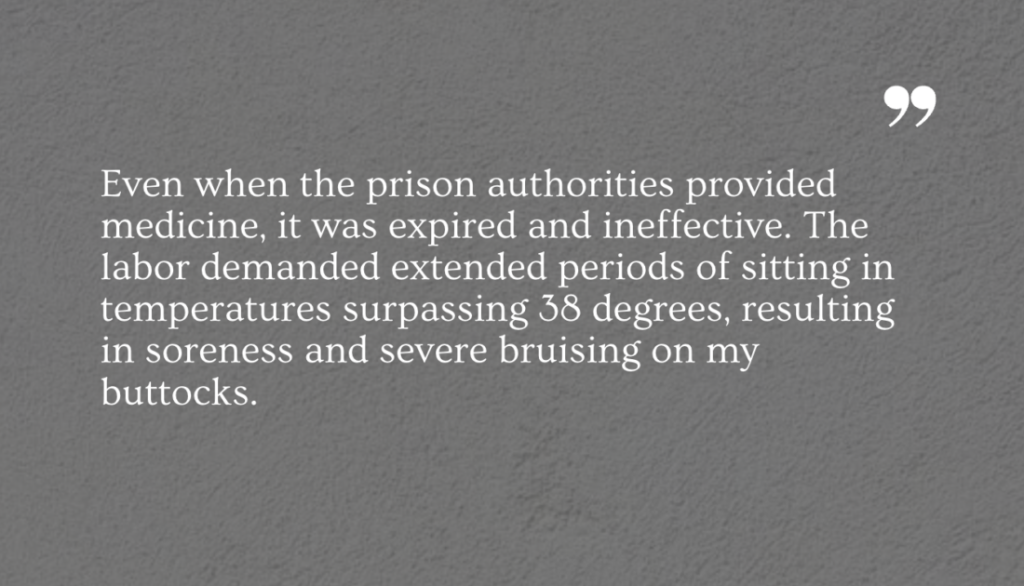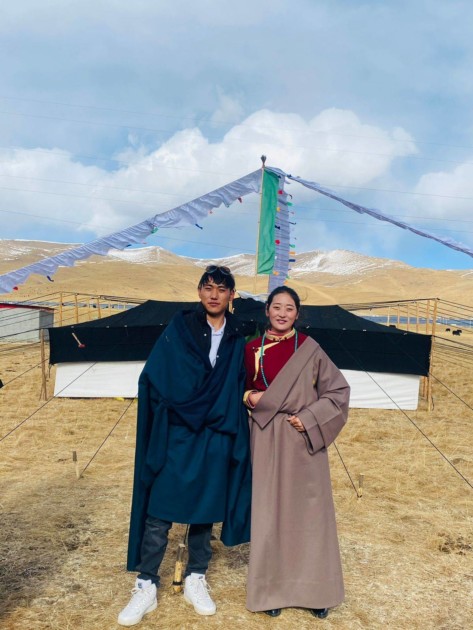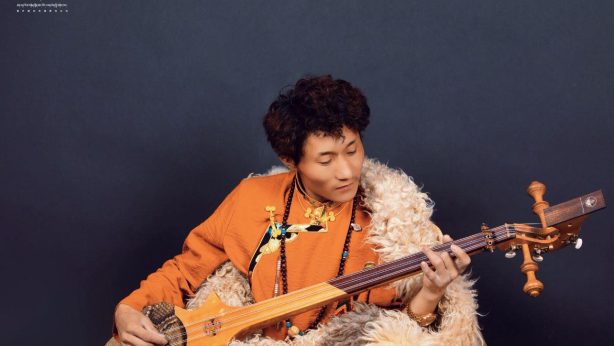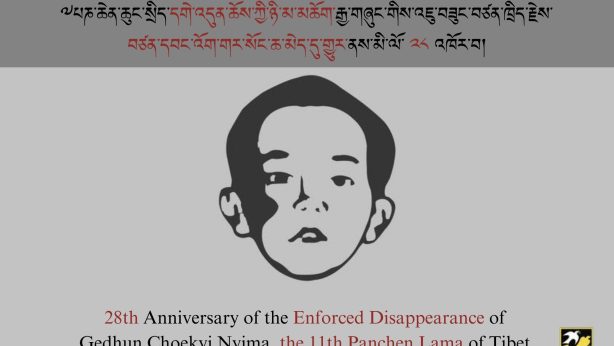TCHRD Statement on World Press Freedom Day 2024
In an interview with TCHRD, Namkyi, a 24-year-old former political prisoner, describes making the difficult decision to leave her family and her daring escape across the border with her childhood friend and cousin sister Tsering Kyi, both of whom arrived in India last summer.

Despite the punitive measures imposed by Chinese authorities, it was the suffering of her loved ones that weighed heaviest on her conscience. Namkyi detailed the prevailing culture of fear and oppression, where dissent was stifled and discouraged, isolating individuals like herself in the struggle for justice.
On 21 October 2015, Namkyi, along with her sister, Tenzin Dolma, who were both 15 at the time, staged a peaceful protest carrying two large portraits of His Holiness the Dalai Lama while marching on the ‘Martyrs Road’ in Ngaba (Ch: Aba) County, Tibetan Autonomous Prefecture, Sichuan Province. They called for “Freedom in Tibet” and the “Return of His Holiness the Dalai Lama and Kirti Rinpoche to Tibet”.

Within 10 minutes, a squad of between four and five Chinese armed police officers arrived and brought them to a detention centre. Both sisters endured rigorous and relentless interrogations, and experienced severe physical and psychological torment, including prolonged exposure to extreme heat, deprivation of sleep and inadequate food, and solitary confinement, as they awaited sentencing during a one-year pre-trial detention period.
Before her sentencing, Namkyi underwent intense political re-education sessions at the detention centre. Authorities frequently told her,
“You’re such a young girl; Why would you protest? You should be grateful to the Party.“
For one hour every week, they were given “political re-education” sessions. These sessions consisted of watching government TV news channels and sitting through lectures on Xi Jinping ‘Thought’, Chinese language and Chinese laws.
On 23 November 2016, the Trochu County People’s Court handed down a three-year prison sentence to Namkyi and Tenzin Dolma, who faced charges of ‘inciting separatism’ in a closed-door trial. Despite being only 16 years old then, the court intentionally raised their age to 18. They were subsequently imprisoned in the Sichuan Province Women’s Prison. During the initial three months of their imprisonment they were forced to endure mandatory military style training, ‘political re-education’, and forced to learn the Chinese constitution. They had to study for, and complete, an oral test on numerous Chinese documents, and underwent training for daily activities as prisoners. They were subjected to excessive hard labour for over 12 hours per day, where they had to make copper wires, cigarette boxes and wristwatches.
They were provided with spoiled food, including watery rice porridge and uncooked meals, which compounded their weakened physical state, making the rigorous mandatory military training exceptionally difficult. Namkyi recalls that despite requiring medical assistance, it was repeatedly denied.

On 21 October 2018, the sisters were released from prison following the completion of their sentences. However, they continued to be detained at the police station in Ngaba County for a week, as their family were required to submit a pledge letter for their release. Like many other Tibetan political prisoners in Tibet, their identity cards were blacklisted, as well as their family’s household registration cards (Ch: Hukou) ; this was due to the involvement of Namkyi, Tenzin Dolma and their brother, Gendun Phuntsok, in political activism. Consequently, they were excluded from government welfare schemes, from which they had previously received a small amount of rice and grains annually.

Following their release, heightened surveillance and stringent monitoring severely restricted their ability to move freely and access vital service; they were denied medical examinations in hospitals. Their nieces and nephews also faced administrative obstacles when attempting to enrol in universities, a consequence of the Chinese government’s practise of collective punishment. They were largely penalised due to their association with political prisoners, illustrating the unjust repercussions endured by families of Tibetan political prisoners.
In 2015, TCHRD reported the sentencing of Gendun Phuntsok, Nyamki’s elder brother, and Lobsang Kelsang, two monks from Kirti monastery, after they participated in a peaceful protest in Ngaba County. The County People’s Court in Tashi Ling (Ch: Li) County, Ngaba, sentenced Gendun Phuntsok to four years in prison and Lobsang Kelsang to three and a half years. Despite being 17 years old at the time, Gendun Phuntsok’s age was falsely increased to 18 by Chinese authorities.
Gendun Phuntsok, was released from prison in 2019 after serving a four-year sentence; the news of his release only came to light following Namkyi’s escape from Tibet. Upon release he was emaciated, and required extensive medical attention for injuries sustained during his imprisonment. Initially treated in Ngaba County, he was later transferred to Chengdu’s Municipal People’s Hospital, where it was discovered that he had suffered broken ribs and untreated tuberculosis in prison. His family members incurred medical expenses exceeding 10,000 Chinese Yuan, costs which were not covered by the Chinese government. To this day, he continues to endure chronic pain from the rib injuries inflicted during his time in Chinese custody.
Similarly, Lobsang Kelsang, who was sentenced at a similar time, was released in poor health conditions. Despite completing his prison term he faced an additional six months imprisonment for allegedly reacting negatively to prison guards, which led to a prolonged period spent in harsh conditions in solitary confinement. Upon release his health was severely compromised, and he was on the brink of death.

Numerous Tibetan political prisoners have attested to being denied adequate medical attention, a violation of both Chinese law and international standards, including the Convention against Torture, the International Covenant on Civil and Political Rights, and the Basic Principles for the Treatment of Prisoners. The deliberate withholding of medical care as a means of further persecution against detainees and prisoners of conscience indicates a tacit endorsement of such practices by the Chinese government, forming a systemic pattern of abuse.
Namkyi, Tenzin Dolma, and Gendun Phuntsok hail from a nomadic family in Chugle Gabma Village, Cha Township, Ngaba County. They are the children of Mrs. Rigkho and Mr. Tragya, also known as Tashi Gyatso. Nyamki fled Tibet to raise awareness about the hardships faced by Tibetans under Chinese oppression, and is urging the international community not to be swayed by the false narratives which are propagated by the Chinese government.



